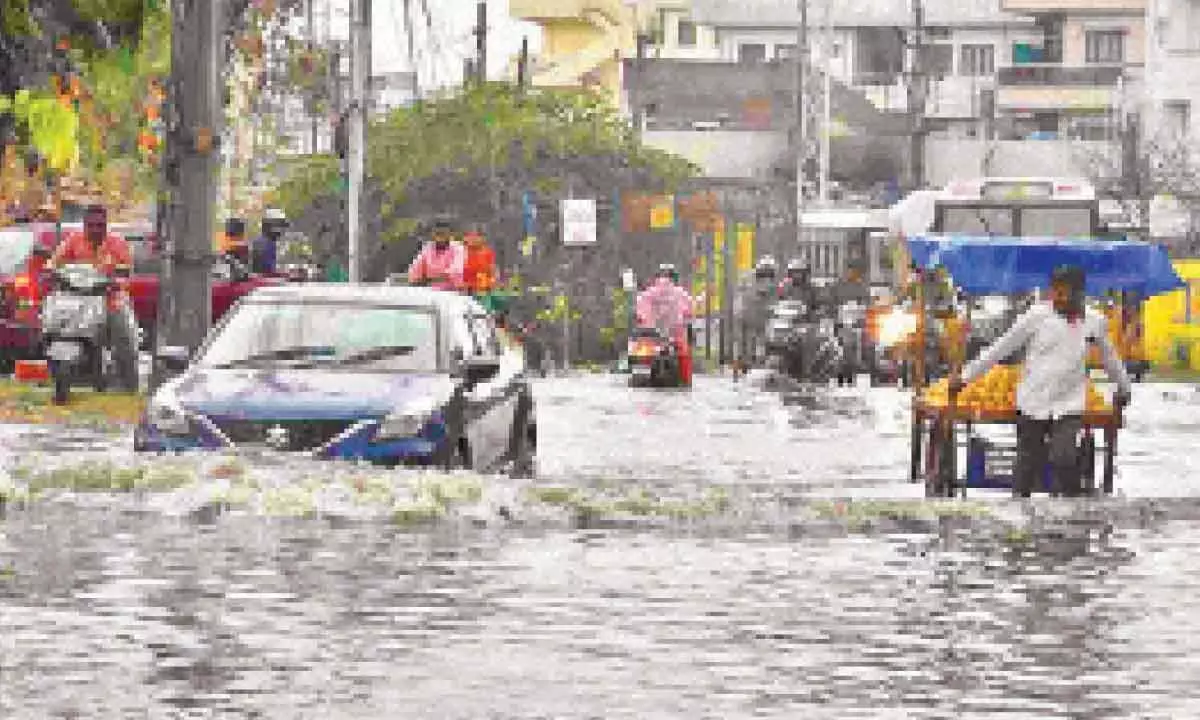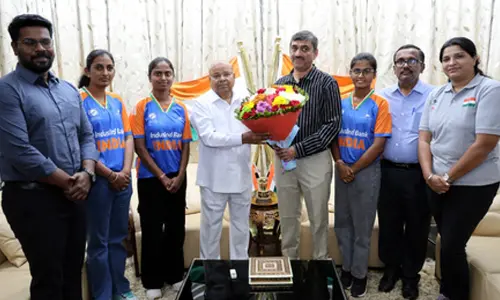Hyderabad: Government maps out monsoon safety plan for civic bodies

The Telangana government is planning to implement a robust monsoon action plan for urban local bodies (ULBs) across the State.
Hyderabad : The Telangana government is planning to implement a robust monsoon action plan for urban local bodies (ULBs) across the State. The objective is to mitigate rain-related damages during and after the monsoon season. Each ULB official has been assigned specific tasks and timelines.
Commencing from June 01, officials have been instructed to establish an adequate number of emergency squads to address rehabilitation work. Additionally, they are responsible for installing diesel generators at strategic locations, particularly at the head water works, to be used in case of emergencies. Furthermore, officials are expected to facilitate the drainage of water from inundated areas.
In order to prevent mosquito breeding, officials have been directed to undertake regular anti-larval measures every Friday. These measures encompass inspecting and treating overhead tanks, underground storage tanks, cement tanks, metal drums, earthen jars, rainwater harvesting tanks, and evaporation coolers (in hot and dry areas). Other areas of focus include coconut shells, tires, and any other containers that may collect stagnant water.
Efforts to educate the public are essential in maintaining hygiene and preventing the disposal of waste in drains. Officials are encouraged to emphasize the importance of closing OHTs/sump septic tanks with covers, regularly applying larvicide (such as bytex), and using oil balls where necessary to curb mosquito larvae growth. Fogging activities should be conducted in the evening within the ULB. It is crucial to remain vigilant during the monsoon and post-monsoon seasons, as they are peak times for mosquito breeding, necessitating heightened precautions.
The sanitation wings have been entrusted with the responsibility of ensuring 100 percent door-to-door garbage collection and proper treatment of waste. Furthermore, they are required to remove debris, clear roadside bushes, manage biomedical waste effectively without mixing it with other municipal waste, and ensure proper disposal. Public places such as bus stands, markets, school premises, hospital premises, cart stands, and ration shops should be regularly disinfected using a freshly prepared 1 percent sodium hypochlorite or phenolic disinfectant.














